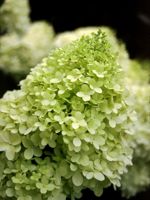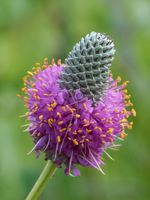Mon-Fri 9am - 5pm Mountain time
Limelight Hydrangea vs Purple Prairie Clover
Hydrangea paniculata Limelight
Dalea purpurea
NOT AVAILABLE THIS SEASON - MIGHT RETURN
NOT AVAILABLE THIS SEASON - MIGHT RETURN
Limelight Hydrangea is a flowering shrub that is known for its green flowers. As they mature, the flower colour changes from a pale green to a creamy white, followed by shades of pink and red. Hydrangea flowers persist longer compared to other flowering shrubs, blooming from late July into fall. They are a popular choice for flower arrangements.
The Limelight Hydrangea can be grown as a stand alone shrub, as a hedge, or incorporated into a flower garden. Blooms occur on new wood, so regular pruning is encouraged in late winter. This is an award winner from the Proven Winners® collection.
Purple Prairie Clover is a native perennial wildflower known for its striking purple blooms. The flower heads grow as dense spikes on tall stems, with each flower head containing many tiny blossoms. Blooming for 4–6 weeks in the summer, it attracts a variety of pollinators, including bees and butterflies.
The high protein content of the Purple Prairie Clover makes it excellent forage for wildlife and birds like to feed on its seeds. As a nitrogen-fixing plant, it enriches the soil, improving fertility and benefiting nearby vegetation. These ecological contributions make it a great choice for pollinator gardens, prairie & rangeland restoration, naturalization, and re-vegetation efforts.
This drought and heat-tolerant plant thrives in various soil conditions, including rocky soil, making it remarkably easy to grow in challenging environments.
Limelight Hydrangea Quick Facts
Purple Prairie Clover Quick Facts
Toxicity: toxic to dogs, cats, and horses

